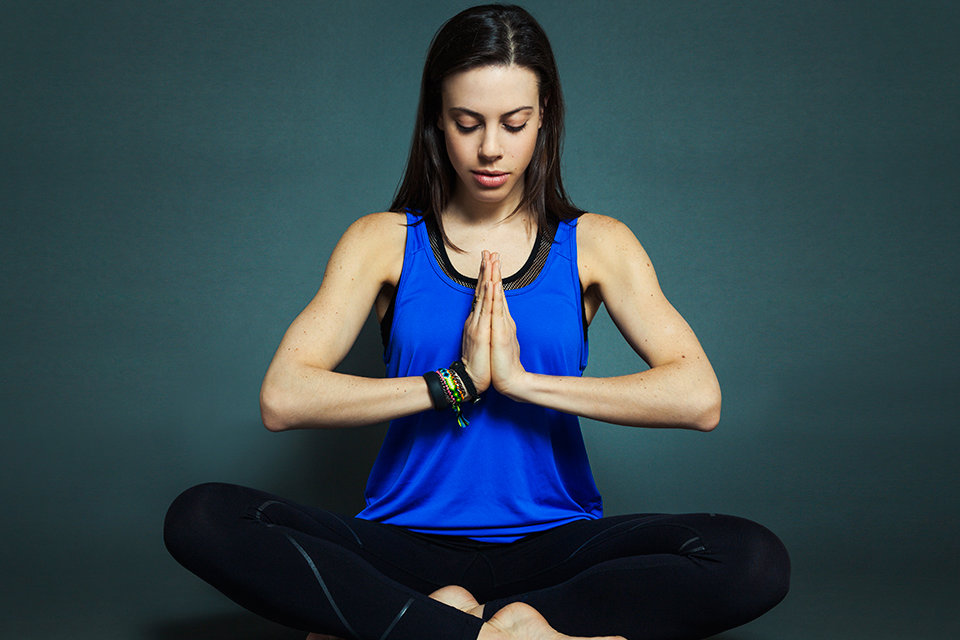Meditation and Exercise
For someone who already exercises regularly, does adding a daily meditation practice really make a difference?
“Though (meditation) is a mental technique, due to the mind-body relationship the practice has extensive physiological effects.” – Gary Kaplan MD, Neurologist NYU Medical School.
We’ve all heard about it, we all know someone who’s doing it, and we are all aware of the purported positive benefits that come from incorporating a daily meditation practice into our lives.
But what exactly are these “extensive physiological effects”?
In other words, how do they present themselves in the overall function of the body, and specifically in everyday fitness and physical activities?
For someone who already exercises regularly, does adding a daily meditation practice really make a difference? If so, what kind?
For years, clients have told me, “exercise IS my meditation”. So then, is there really that much more to gain if we meditate before we uh, “meditate”?
In search of answers to this query, I put on my nerd hat and browsed through my favorite medical journals 1 looking for evidence of studies on the combined effects of meditation and exercise.
In search of answers to this query, I put on my nerd hat and browsed through my favorite medical journals1 looking for evidence of studies on the combined effects of meditation and exercise….
Results? Zilch, nada, nothing! I was shocked! I understand that meditation is relatively new-age in the western world, but considering how long people have been practicing in eastern cultures, I’m surprised there haven’t been any significant studies with this focus.
The studies I did find only compared and contrasted the effects of meditation versus exercise to try to determine if one practice had a significantly larger physiological impact over the other.
For example, one study examined the effects of meditation versus exercise in self-regulation of anxiety2.
Another study measured the effects of meditation versus exercise as it relates to cortisol levels and overall mood change in elite runners and highly trained meditators3.
But again, nothing turned up regarding the compounding effects of meditation and exercise.
So as any inquisitive, hungry mind would do, I turned to the best test subjects there are.
Exercise fanatic, type-A, try-anything-once, New Yorkers…..also known as my friends and clients.
So as any inquisitive, hungry mind would do, I turned to the best test subjects there are.
Exercise fanatic, type-A, try-anything-once, New Yorkers…..also known as my friends and clients. Jackpot!
Not only did everyone have something to report, but the variety of positive benefits reported was inspiring.
One client, a long time runner, incorporated cross training and daily meditation into his fitness routine for four months prior to running an upcoming half marathon and he ultimately shaved sixteen minutes off his best race time!
Another client with chronically tight hamstrings, so tight that he had never been able to touch his toes despite copious hours spent stretching and massaging, recently touched his toes without any strain whatsoever! It turns out he too started meditating regularly.
One female client recently dropped a noticeable amount of weight in a rather short period of time after struggling for years to do so. At first glance, the obvious reason was due to her increase in training days from three to five days per week. But when pressed as to what mental shift occurred that made partaking in daily workouts a newfound priority, she responded; “When I take even 10 minutes in the morning to meditate, it reminds me that I have the ability to dedicate some time to just me….If I routinely dedicate 10 minutes to myself through meditation, I am more resolute to routinely dedicate an hour to my body, too.”
Not one to fall behind, I too began a daily meditation practice in January of this year, and thus far I have also noticed significant physiological improvements in my body. An old knee injury that until recently prevented me from running more than five miles at a time has vanished. Hours and years of high impact cardio had also left me with what I thought were chronic shin splints, and tight hip flexors. I now no longer suffer from either of these.
Most impressively, my blood pressure in January was 110/70 and last month it came in at 106/61!
Aside from the physical improvements, recoveries, and new found personal accountabilities mentioned, each and every person interviewed said that meditation has improved the overall quality of their workouts because they are now significantly more focused on the task at hand and also place more value and appreciation on each moment of exertion.
As their trainer, I now see the clients that are typically distracted during their push-ups have an increased focus and new understanding that fitness is as much a mental challenge as it is a physical undertaking. They even seem to welcome it.
The clients who are traditionally overly critical of themselves and as such never truly satisfied with their fitness performance and physical appearance have found more compassion, love, and forgiveness for the person staring back in the mirror.
The clients who are traditionally overly critical of themselves and as such never truly satisfied with their fitness performance and physical appearance have found more compassion, love, and forgiveness for the person staring back in the mirror. This has been the biggest win for me personally, and as a result I have experienced an overall improvement in my quality of life.
So, I invite you to engage in your own personal experiment.
See what happens if you decide to devote just ten minutes a day to sitting in silence and checking in with your physical and mental wellbeing.
Call it meditation, call it whatever you want. The purpose is to give yourself permission to be present in the moment in everything you do each and every day including your exercise routine.
With that I say “Om on” dear friends…….
1. National Center for Biotechnology Information httpss://www.ncbi.nlm.nih.gov, The New England Journal of Medicine httpss://www.nejm.org
2. Schwartz GE, Davidson RJ, Goleman DJ on NCBI httpss://www.ncbi.nlm.nih.gov/pubmed/356080
3. Jane L. Harte, Georg H. Eifert, Roger Smith for Biological Psychology, 1995 httpss://www.sciencedirect.com/science/article/pii/030105119505118T






